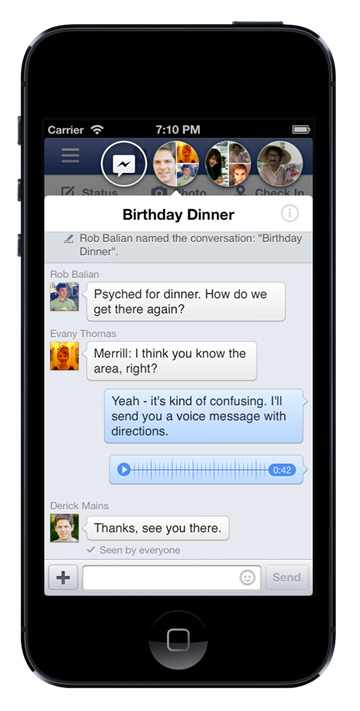

Then other people project onto AGI the idea of the singularity-that if you had an AGI, then you will have an intelligence that can make itself better, and keep improving. But I think it's a bit disingenuous because if you really think of human intelligence, it is not very general. On the one hand, you have people who assume that AGI is human intelligence. But I think many people in the lab, including Yann, believe that the concept of “AGI” is not really interesting and doesn't really mean much. We're still very, very far from that, but we think it’s a great objective. JP: As a lab, our objective is to match human intelligence. Some companies, for instance DeepMind and OpenAI, claim their objective is to develop “artificial general intelligence.” Is that what Facebook is doing? We’re trying to be ahead of the game, and we’ve engaged the industry and the community. It’s not really significant on the platform at the moment, but we know it can be very powerful. It’s a really important challenge that we are trying to be proactive about. We actually went around and created new deepfake videos, so that people could test deepfake detection techniques. By no measure is it a solved problem, but there's clear progress being made. We can understand if people are trying to bully, if it’s hate speech, or if it’s just a joke.

Recently there’s been a lot of progress in the field of language, allowing us a much more refined understanding of interactions through the language that people use. We’ve been able to apply that in the last few years for recognizing nudity, recognizing violence, and understanding what's happening in images and videos.
HEAD FOR FACEBOOK HOW TO
More recently, Facebook has been forced to reckon with how to stop AI-powered deception in the form of deepfake videos that could convincingly spread misinformation as well as enable new forms of harassment.Įarly on, the field made progress on vision- understanding scenes and images. Mark Zuckerberg has promised to deploy AI to help solve some of the company’s biggest problems, by policing hate speech, fake news, and cyberbullying (an effort that has seen limited success so far). And, despite some notable AI flops, like the personal assistant M, Facebook continues to use AI to build new features and products, from Instagram filters to augmented reality apps. Algorithms that learn to grab and hold our attention help make the platform and its sister products, Instagram and WhatsApp, stickier and more addictive. As VP of artificial intelligence at Facebook, he oversees hundreds of scientists and engineers whose work shapes the company’s direction and its impact on the wider world.ĪI is fundamentally important to Facebook.
HEAD FOR FACEBOOK ANDROID
Users will be able to download the new features on Android phones starting April 12.Jerome Pesenti leads the development of artificial intelligence at one of the world’s most influential-and controversial-companies.

"On a deeper level, this can start to be a change with how we use these computing devices." "On one level this is just the next mobile stage for Facebook," CEO Mark Zuckerberg said. Facebook Home consists of a family of the social network's apps that becomes the home of your Android phone. "What's so cool and special about this is it's happening right on top of the app I'm using and the article I'm reading," he added.įacebook, in an effort to keep mobile audiences always affixed to its social network, today showed off a new "Home" on Android at a press event at its Menlo Park, Calif., headquarters. You can manage multiple messages with a single tap.Ĭhat Heads are "a way you can talk to your friends no matter what you're doing in your phone, no matter what app you're in," Joey Flynn, a Facebook product designer, said. And if you receive messages from multiple people, you can pick up the whole group of messages and do the same. To close the chat, you can throw the Chat Head away by swiping it to the bottom of the screen.


 0 kommentar(er)
0 kommentar(er)
